Abstract
BACKGROUND: It is recommended that long-term users of benzodiazepines in general practice be withdrawn from their medication where possible. AIM: A study was undertaken to assess the effectiveness of minimal intervention delivered by general practitioners in helping chronic users of benzodiazepines to withdraw from their medication, and to determine the psychological sequelae on patients of such intervention. METHOD: Patients taking benzodiazepines regularly for at least one year were recruited by their general practitioner and allocated either to a group receiving brief advice during one consultation supplemented by a self-help booklet or to a control group who received routine care. The patients completed the 12-item general health questionnaire and a benzodiazepine withdrawal symptom questionnaire at the outset of the study and at three and six months after this. RESULTS: Eighteen per cent of patients in the intervention group (9/50) had a reduction in benzodiazepine prescribing recorded in the notes compared with 5% of the 55 patients in the control group (P < 0.05). In the intervention group, 63% of patients had a score of two or more on the general health questionnaire at baseline compared with 52% at six months. Of the 20 intervention patients reporting benzodiazepine reduction, 60% had a score of two or more at baseline compared with 40% at six months. Intervention patients had significantly more qualitative, but not quantitative, withdrawal symptoms at six months compared with baseline. Consultation rates were not increased in the intervention group. CONCLUSION: The study indicates that some chronic users can successfully reduce their intake of benzodiazepines with simple advice from the general practitioner and a self-help booklet. This type of intervention does not lead to psychological distress or increased consultation.
Full text
PDF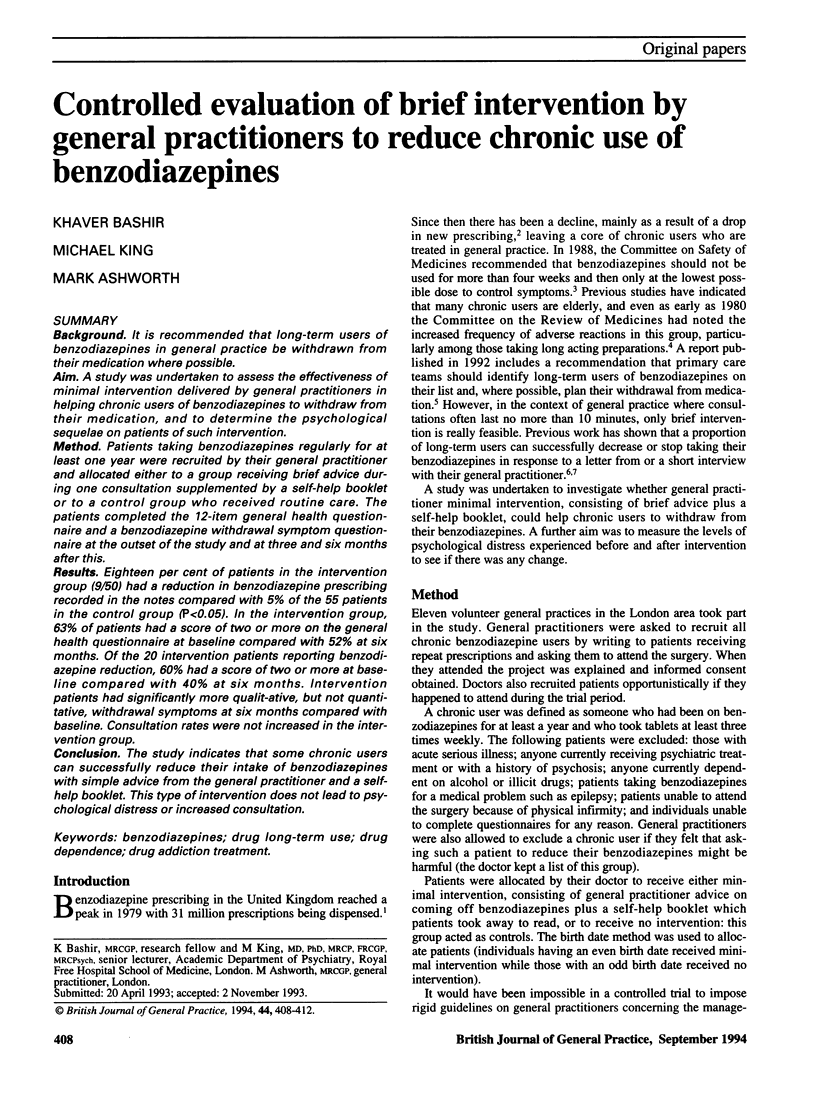
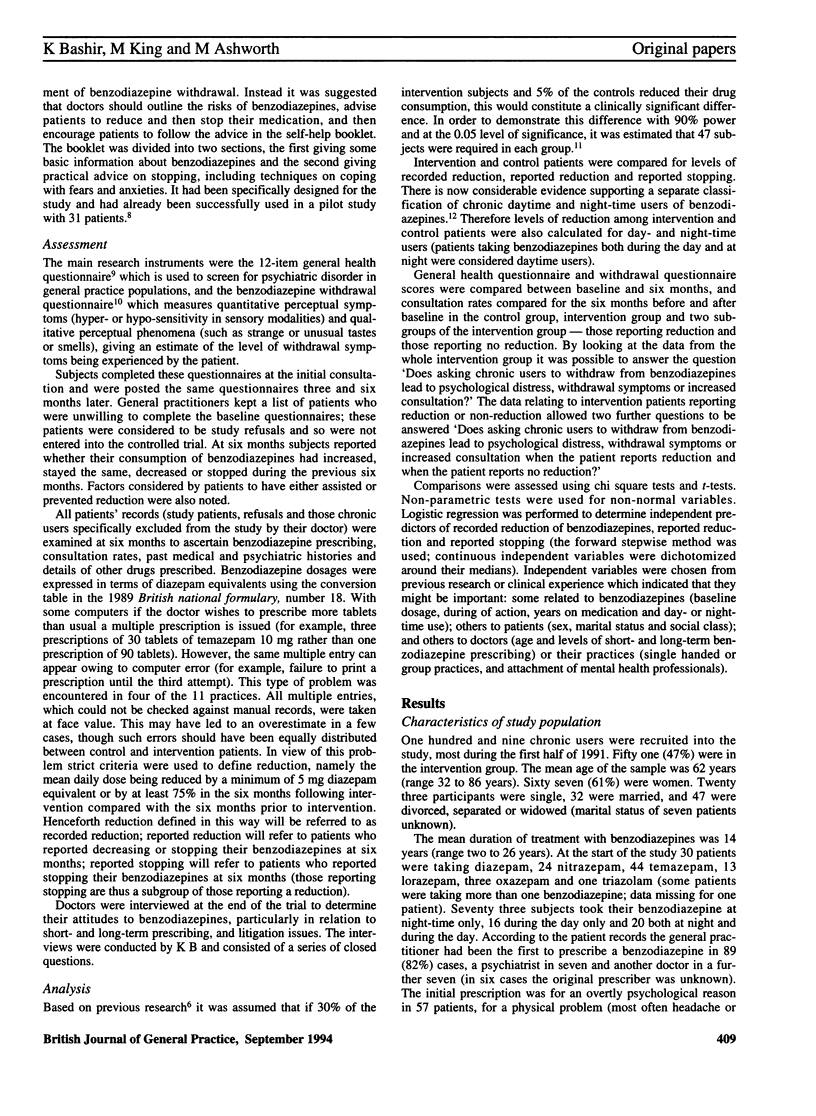
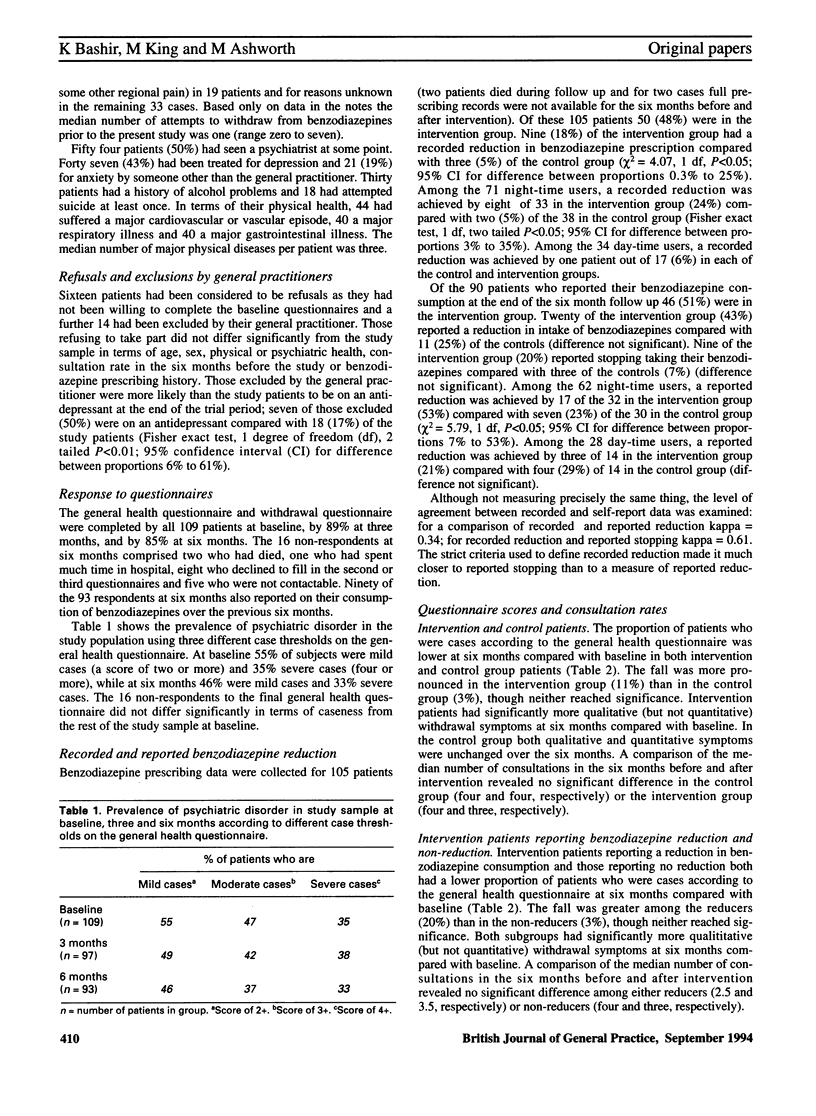
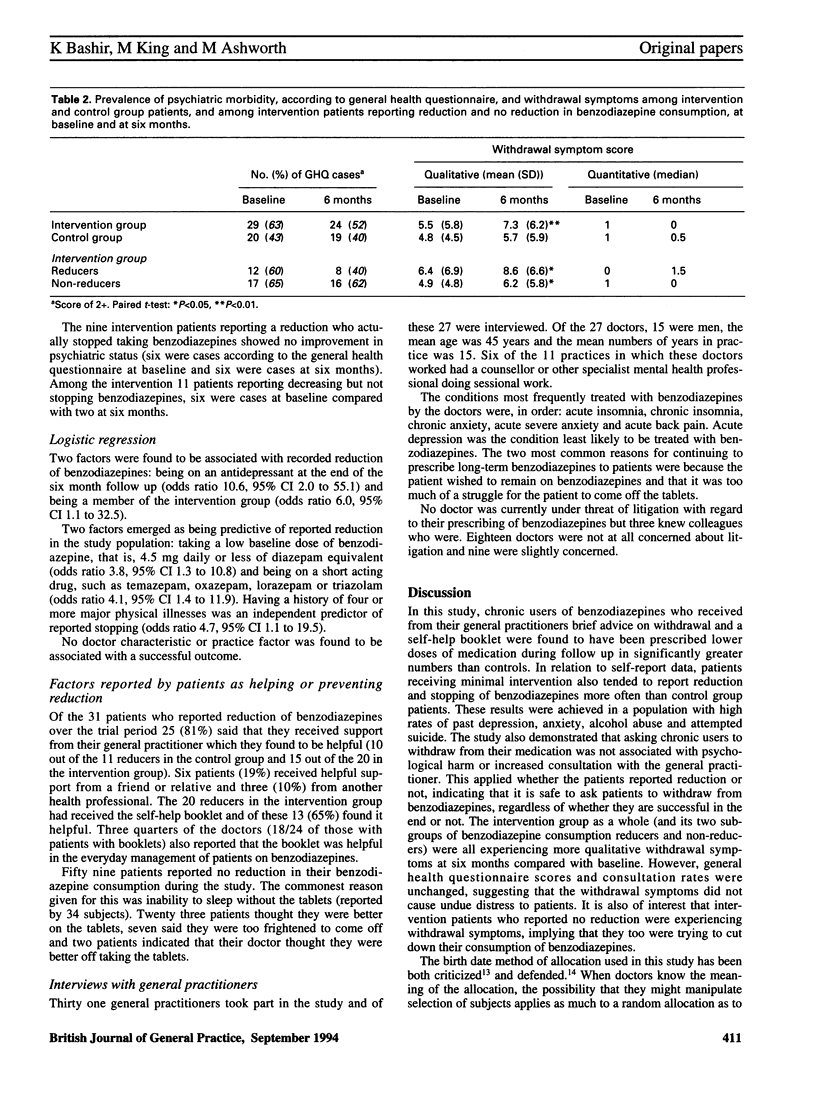
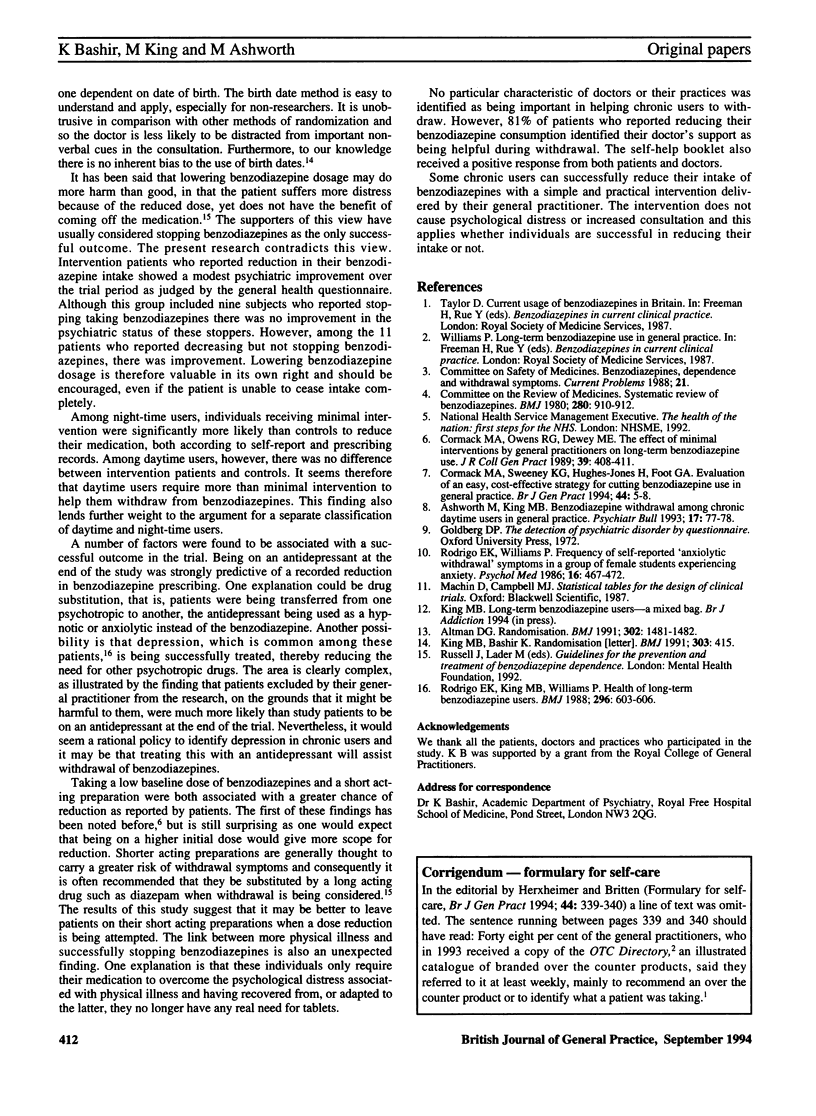
Selected References
These references are in PubMed. This may not be the complete list of references from this article.
- Cormack M. A., Owens R. G., Dewey M. E. The effect of minimal interventions by general practitioners on long-term benzodiazepine use. J R Coll Gen Pract. 1989 Oct;39(327):408–411. [PMC free article] [PubMed] [Google Scholar]
- Cormack M. A., Sweeney K. G., Hughes-Jones H., Foot G. A. Evaluation of an easy, cost-effective strategy for cutting benzodiazepine use in general practice. Br J Gen Pract. 1994 Jan;44(378):5–8. [PMC free article] [PubMed] [Google Scholar]
- Rodrigo E. K., King M. B., Williams P. Health of long term benzodiazepine users. Br Med J (Clin Res Ed) 1988 Feb 27;296(6622):603–606. doi: 10.1136/bmj.296.6622.603. [DOI] [PMC free article] [PubMed] [Google Scholar]
- Rodrigo E. K., Williams P. Frequency of self-reported 'anxiolytic withdrawal' symptoms in a group of female students experiencing anxiety. Psychol Med. 1986 May;16(2):467–472. doi: 10.1017/s0033291700009314. [DOI] [PubMed] [Google Scholar]


